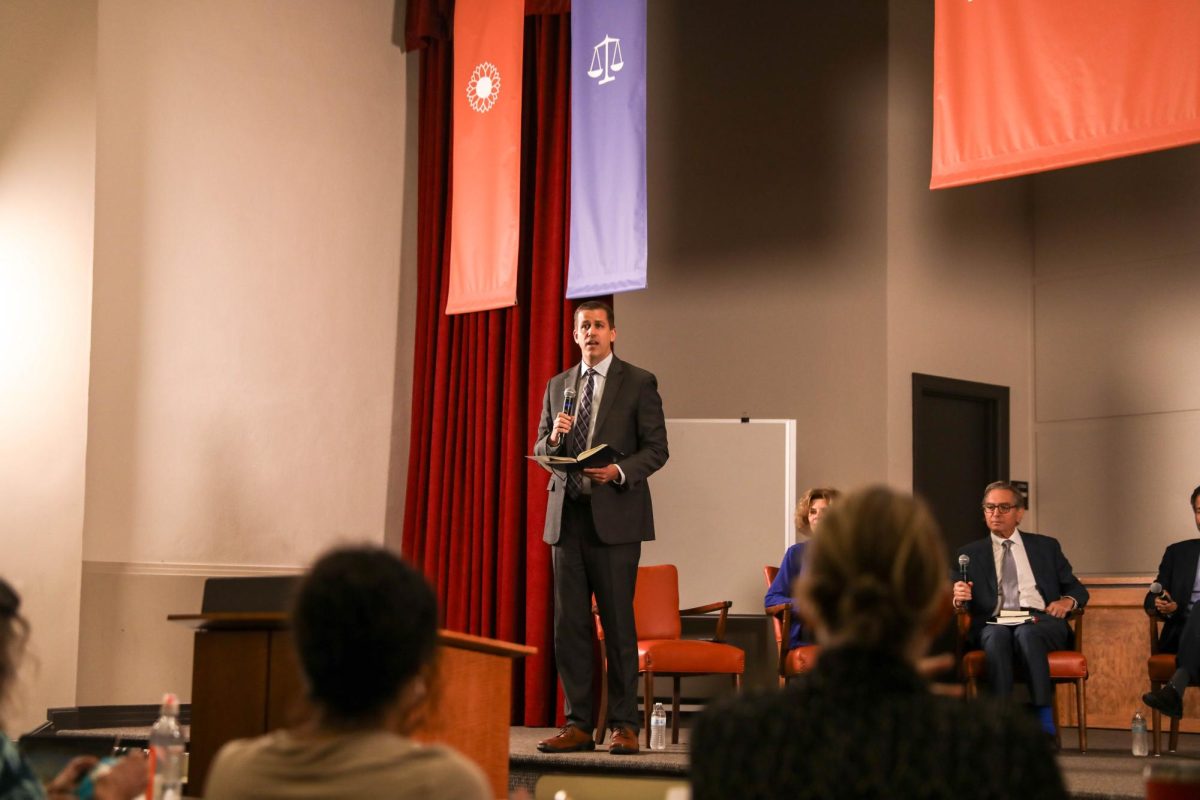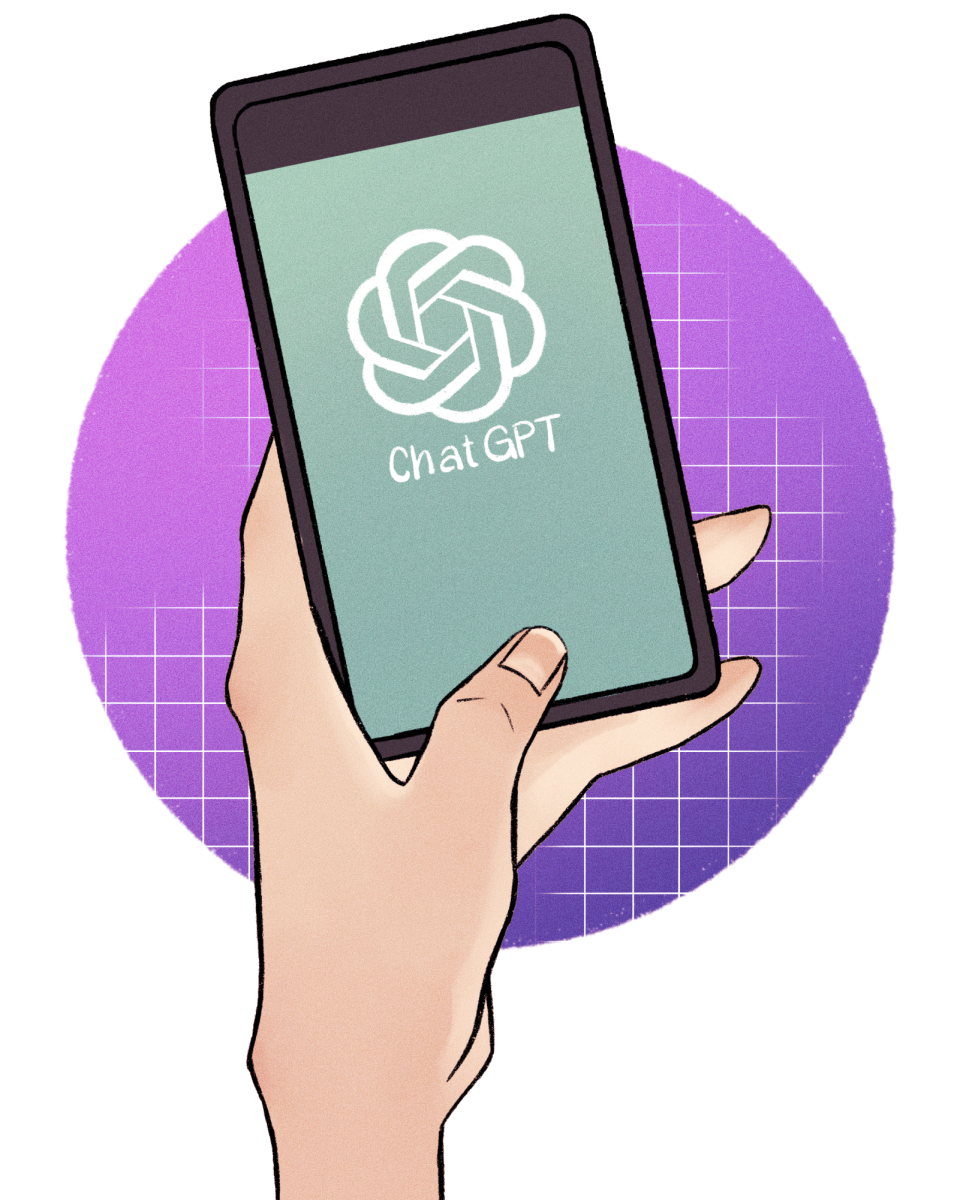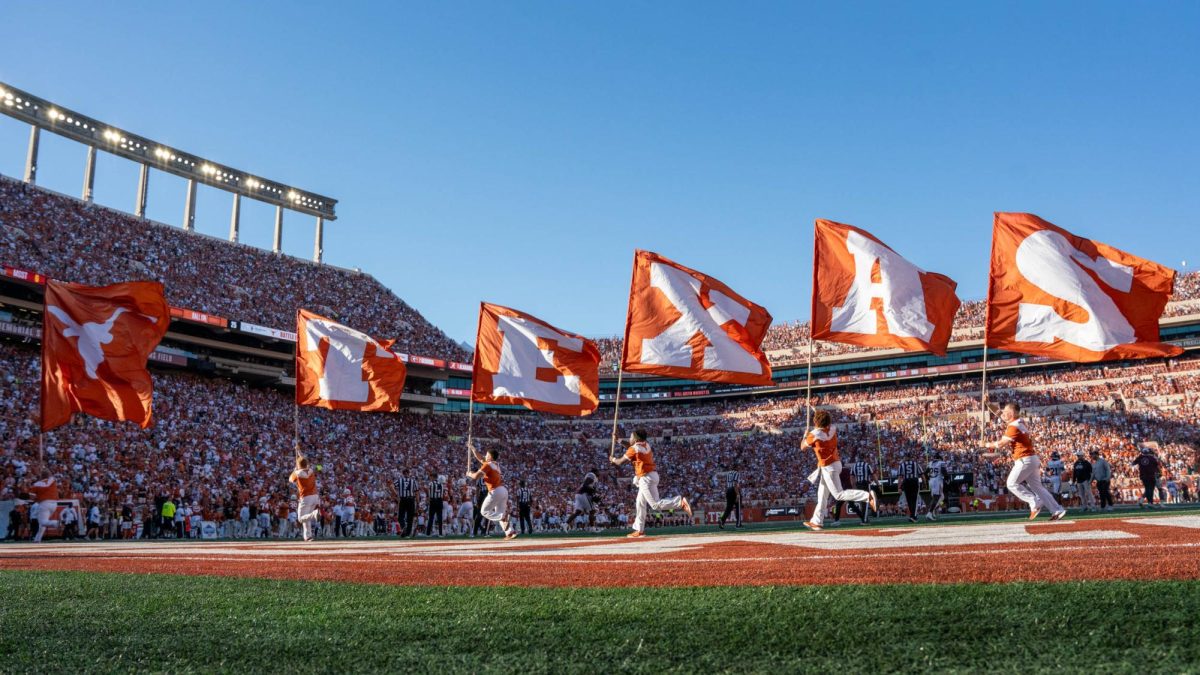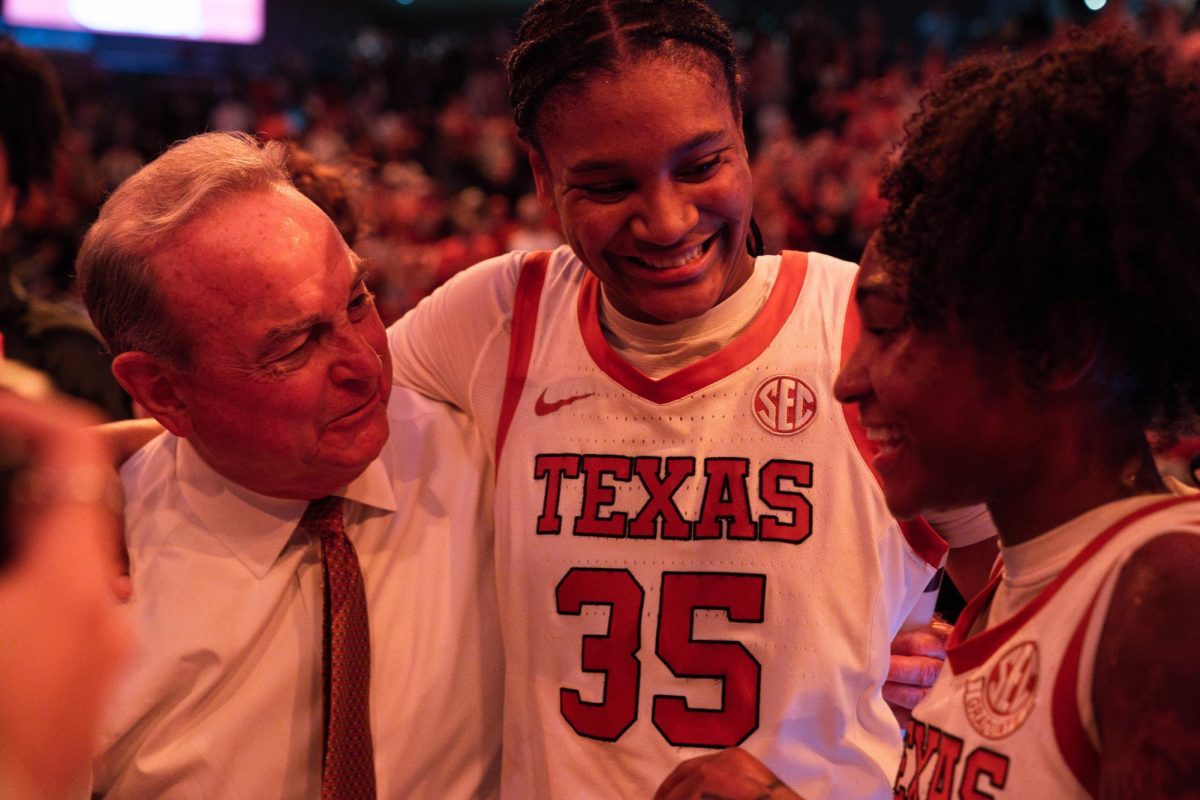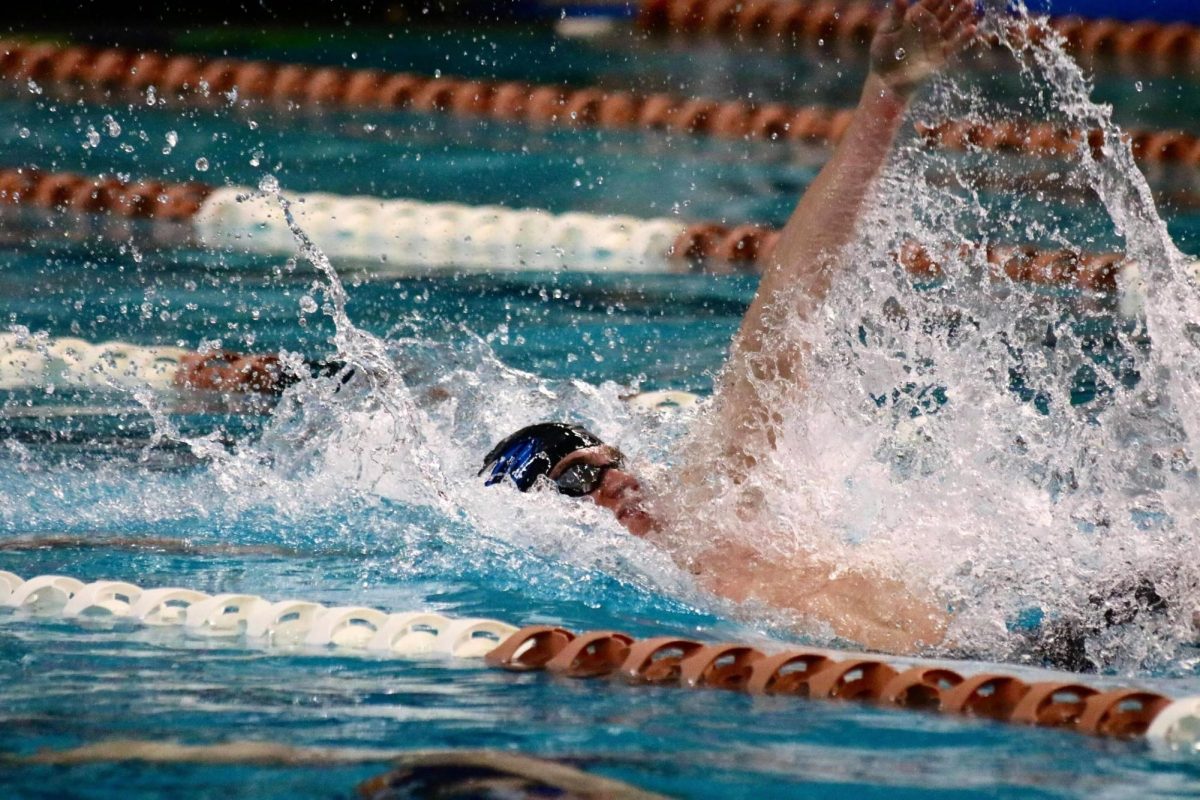Law professionals discussed First Amendment rights on Monday in relation to nationwide Israel and Palestine protests on college campuses in April and May.
The event, called “Scrutinizing Universities Responses to the Campus Protests,” featured law professors from different universities and moderator Steven Collis, founding director of the University’s Bech-Loughlin First Amendment Center.
Clinical law professor Collis started the discussion by speaking about the protests that took place at the University on April 24 and 29, where officers arrested 136 total across both days, according to previous Daily Texan coverage. Panelists discussed what would merit an arrest.
“There would have to be probable cause that a crime was being committed (to arrest protesters),” said Nadine Strossen, a former law professor at the New York Law School. “Since these individuals under arrest were engaging in expressive conduct on what I take to be an open area of campus, under state law (the area is) required to be held open for anybody to express opinions.”
Although panelists said the First Amendment protects free speech, college protests can have time, place and manner restrictions. According to the Free Speech Center, government institutions can impose limitations to regulate expressive activity without discriminating against the content of the protests.
“This is really important because this is the struggle that we find ourselves in,” said Evelyn Douek, assistant professor of law at Stanford University. “(People think) the First Amendment is so strong. Then you get to the time, place and manner rules and it turns out the government can restrict a whole lot of speech.”
Time, place and manner restrictions can limit noise levels, times of protests and sign placement, according to the Free Speech Center.
Eugene Volokh, a former law professor at the University of California, Los Angeles, said the place and duration of the protests can affect non-protesters.
“If a group says ‘We’re going to take over this large and central part of campus for weeks on end,’ that interferes with other students’ rights,” Volokh said. “Even if (the demonstration) doesn’t block their way to get to other classes, (other students) may want to have their own demonstration there or they may want to talk with friends there. That, too, is free speech.”
Jameel Jaffer, executive director of the Knight First Amendment Institute at Columbia University, said he worries calling police on protesters has become normalized.
“(At Columbia), hundreds of police officers were on campus to arrest students,” Jaffer said. “We then debate whether the students were violating the rules … but there’s a separate question about the severity of the response and the involvement of law enforcement. We become accustomed to seeing police arresting students on campus and that would be a terrible thing for free speech.”
Genevieve Lakier, a law professor at the University of Chicago, said if protests become disruptive by interfering with students’ educational activities, universities can punish protesters.
Mohammad Fadel, a law professor at the University of Toronto, said despite having some control over expressive activity, universities should not stray away from their purpose as educational institutions.
“What we are trying to teach our students is a certain ethic of submission to reason and evidence,” Fadel said. “We’re not teaching them … ‘The value of peace, order and good government.’ We are trying to teach them to (be) critical thinkers.”

